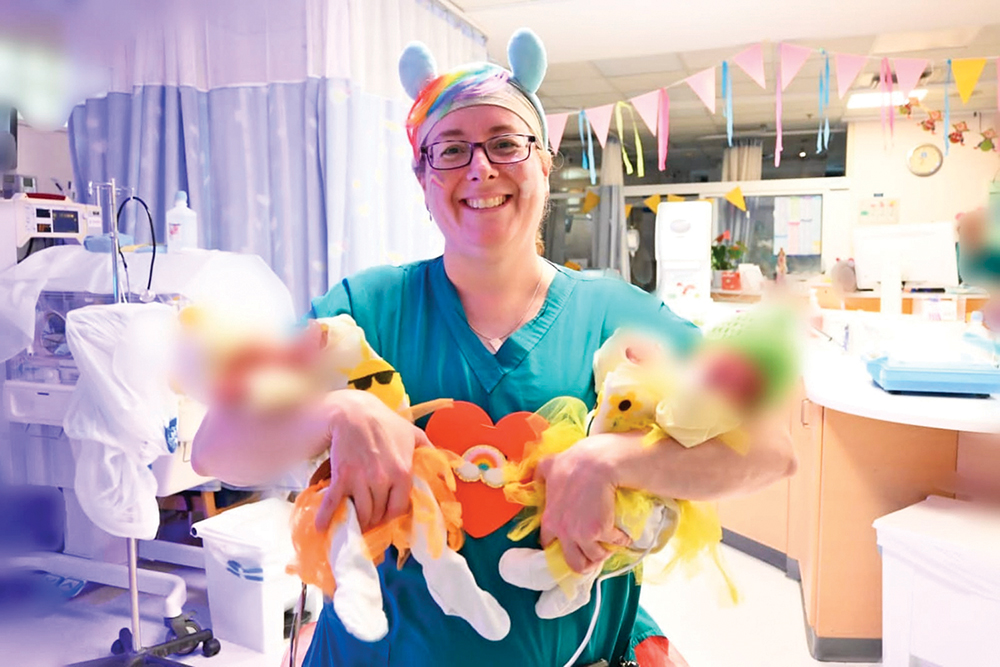
Arielle Schacter has treated thousands of infants in the Neonatal Intensive Care Unit (NICU) at Hadassah Hospital in Ein Kerem, Jerusalem, since 2018, when she launched her career in Israel as a nurse caring for premature babies and sick newborns. Since her aliyah from Fair Lawn seven years ago with her husband and three children, Schachter has gone from speaking only basic Hebrew to mastering the language, obtaining her Israeli nursing degree and treating infants in both the NICU and Special Care units of the hospital.
Schachter treats newborns from all sectors of society—including religious and secular Jews and Arab Israelis. She provides for the basic needs of her patients: feeding, changing diapers, administering medications, performing procedures, communicating updates with parents, and keeping watch over the infants. Before arriving in Israel with the support of Nefesh B’Nefesh, Schachter worked as a school and camp nurse. Once in Israel, she put her previous career aside, thinking that she would open a day care facility. But she missed her nursing work, and pushed through the obstacles that stood in her way, including the language barrier, to pursue a career as an NICU nurse. Today she views her work as a calling.
One of the challenges she navigates is balancing her emotions with what can sometimes feel like mechanical work, especially when she spends her entire shift preparing medications or running from patient to patient without having a moment to pause. “You don’t want to separate yourself emotionally because if you don’t care about the patients and families you can’t do the job,” she explained. “But you can’t be too emotional because it’s not my experience. It’s their experience and I’m just there to make it the best that I can.”
It is often those small details that make the difference. Recently a new mother came to see her infant in the NICU. The baby was attached to many tubes and a monitor, and the mother watched over her newborn from a distance. Schachter asked the woman if she wanted to hold her new baby. She looked nervous at first but accepted Schachter’s offer and picked up her baby for the first time. Schachter noted that the woman was so grateful to go through what felt like such a normative experience with her child.
When she is on the go in the high-pressure environment of the hospital, Schachter is constantly reminding herself to take a moment to ask herself, “What would the baby want?” and, “What would make the parents feel good?”
She spends many hours helping worried parents cope. Though she puts on a strong face for them, Schachter admits that there are moments when she cries. She shared a quote from a doctor who told her, “When it stops affecting you, you are in the wrong job.” Even though she needs to be in control, she is also human.
One of the most gratifying parts of Schachter’s work is when she meets children she once treated as infants. Sometimes a toddler the medical team thought would not survive walks into the NICU a few years later smiling and talking. “Obviously there are lots of stories that are not like that, but we have enough stories that are like that that makes you keep pushing forward.”
Looking ahead, Schachter hopes to spend some time back in the United States in a NICU department to learn techniques practiced abroad and to bring knowledge from the field back to Israel. Looking at where she was seven years ago when she first landed in Israel and where she is now, she cannot believe that this is the life she is living. She insists that there is no other type of work she would rather do.
Alisa Bodner is a Fair Lawn native who immigrated to Israel over a decade ago. She is a nonprofit management professional who enjoys writing in her free time.










